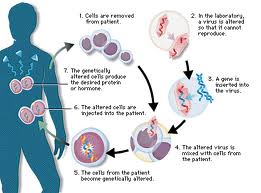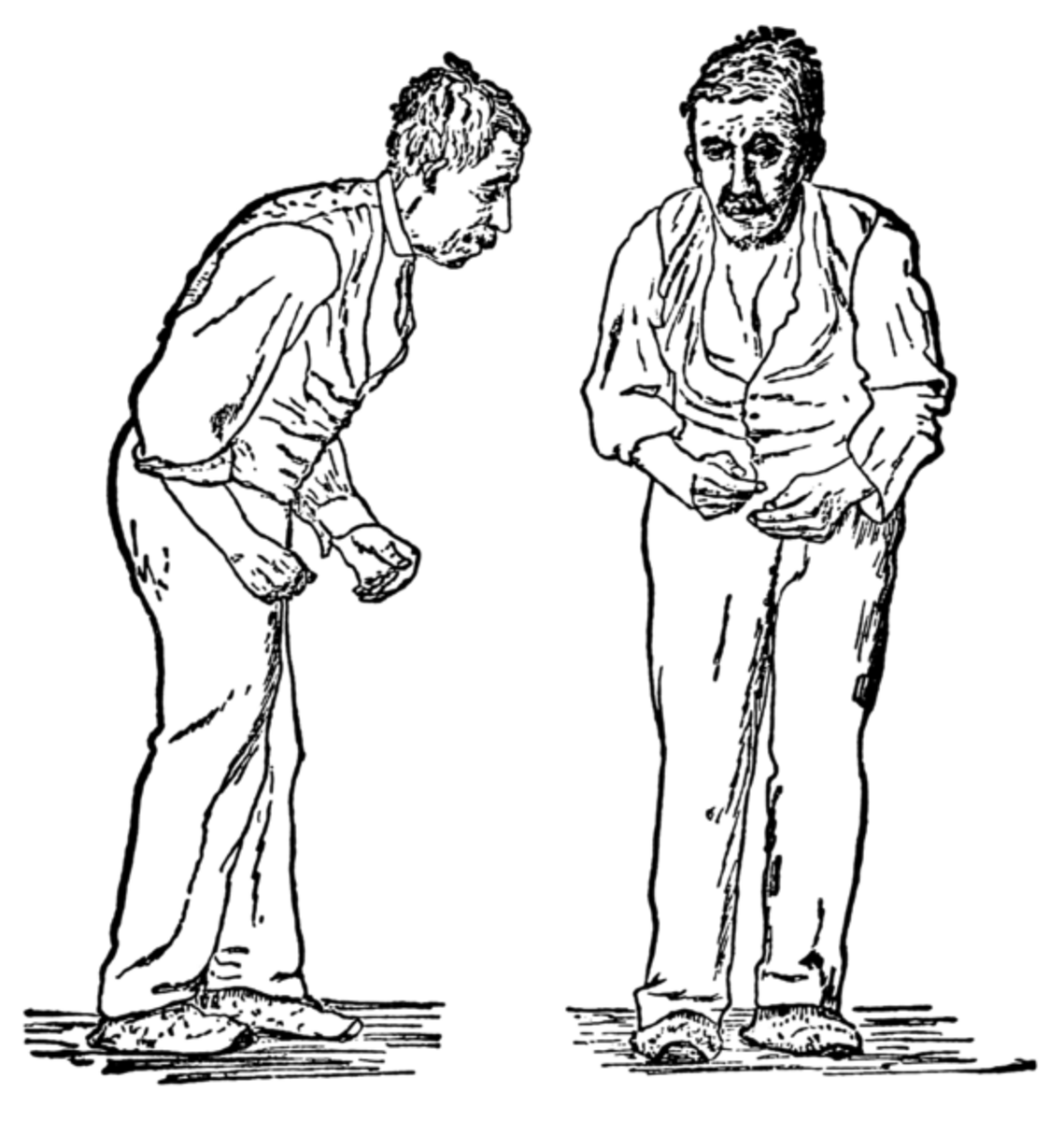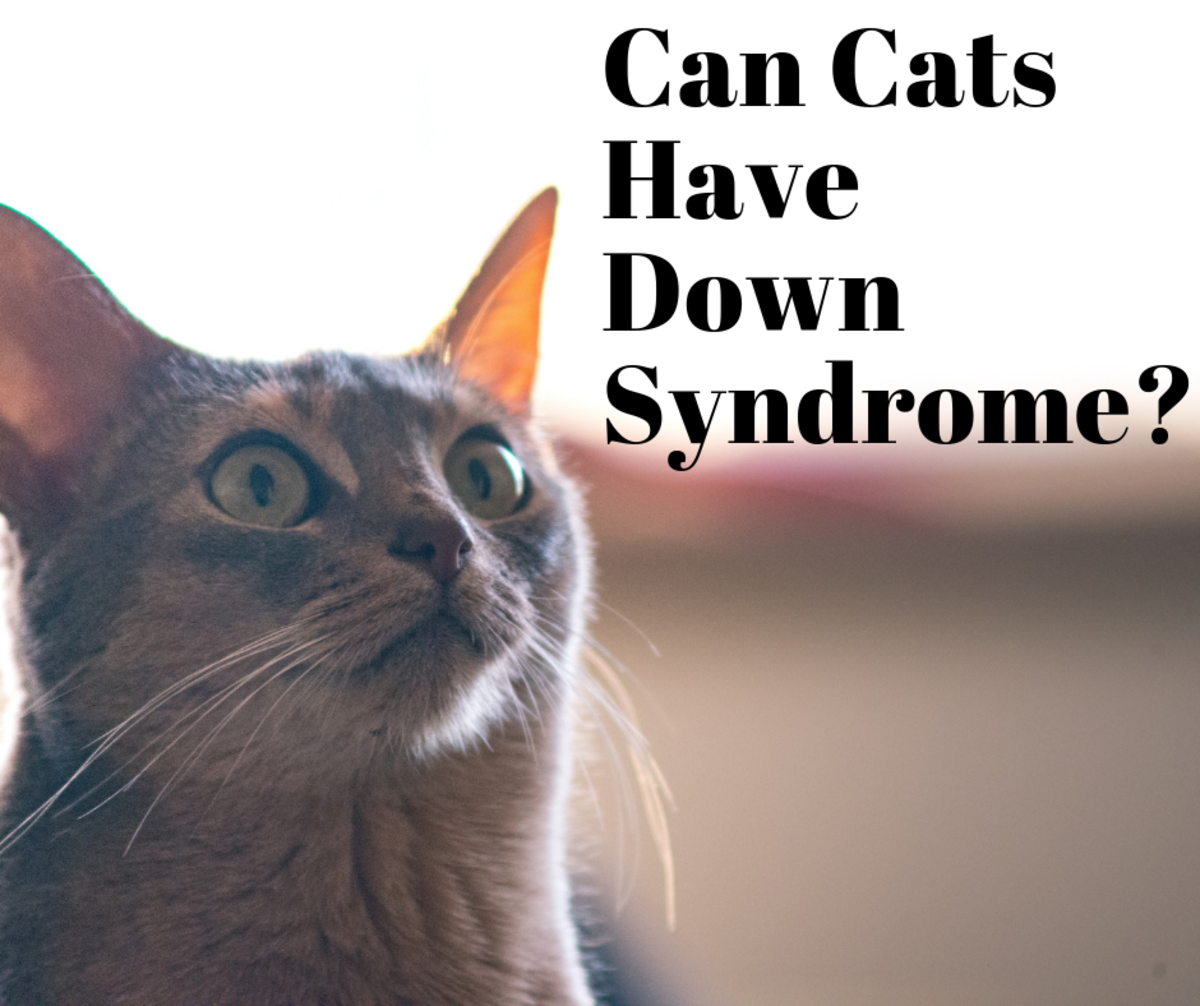Scientific Breakthroughs - Gene Therapy for Genetic Diseases and Disorders - Hope, Help, and Headway
Genes Make Us Unique
We are all special. Our genes are part of our uniqueness. But when it comes to a disease, we don’t want to be unique. Many diseases are the result of genes that are flawed. Gene therapy replaces bad genes with good genes. It is this new therapy that gives promis and hope for cures and relief of ailments that alter the lives of people who are afflicted with a disorder.

Parkinson's Disease is a Genetic Disorder
Parkinson’s disease (PD)is a progressive disorder of the central nervous system. It affects movement, is degenerative, and is chronic. It affects 1% of people over 60, although some have been diagnoses as young as 18 years old. People who suffer from Parkinson’s disease lose brain cells that create the chemical dopamine. Dopamine transmits signals in the brain that relate to coordination and movement. Loss of this chemical makes the neurons to misfire and the person loses the ability to control their own movements.
Currently the way Parkinson’s disease is treated, drugs are used that act like dopamine. However, because neurons are constantly being lost, the drugs eventually lose their effectiveness.
There are about 60,000 Americans who are diagnosed each year, with thousands more going undetected. There are no tests that can confirm or deny that a person has Parkinson’s. It is generally estimated that over 6 million people worldwide have Parkinson’s, including 1 million in the U.S. Parkinson’s disease is believed to be caused by genes that are malfunctioning. It one of many biological genetic disorders.
What are Genes?
Genes tell each cell what specific proteins to make. These proteins affect every function of our body, from making enzymes that help us digest food to our physical traits of eye and hair color. Every person has 25,000 to 35,000 different genes that make up their body.
What is Gene Therapy?
There are many medical issues that result from mutations or flaws in the genes that makeup our body. Changes in the structure of genes can cause a mutation which will make other things in the body go awry. The mutated gene can also be passed down to future generations. Gene mutations are called genetic disorders.
When a person has a disease or disorder, medical science usuall attempts to correct it with drugs. As we make new advances in technology, gene therapy is becoming another alternative. Gene therapy attempts to replace the mutated gene with a functional, normal copy of the gene. It it works, the genetic flaw is corrected. However, gene therapy is complex and and there is still much to be learned. Scientists have not identified every single gene in the body, and do not know what each gene does and how it functions.
So when they attempt gene therapy, they need to know how that particular gene may affect other parts of the body.

There are Many Genetic Disorders
A new gene therapy being used on people at the Weill Cornell Medical College, who have Parkinson’s has been showing great promise . The particular experiment showed a in significant easing of the involuntary motor functions that typify this disorder.
Forty five people with mild to advanced PD were part of an experimental study. 22 were given the new gene therapy, 23 were part of a placebo therapy treatment. No one, not even the evaluators, were told who was part of which group. Six months later, those who were part of the gene therapy group, remarkably demonstrated a 23.1% improvement in motor scores. Motor scores are an evaluation of their tremors, balance, walking difficulties, and muscle spasms. There was a 12.7% improvement in the other group. The researchers are awaiting approval to test the next phase of the experiment. So far they are very hopeful that these results will lead to possibly reversing the symptoms of Parkinson’s disease. Scientists do not view this a cure because they don’t know the fundamental causes of the disorder and why the neurons degenerate. But this experiment is making great strides forward in the treatment of Parkinson’s.
As science make inroads and new discoveries many inherited disorders have the possibility of being alleviated. There are thousands of diseases classified as genetic disorders, some of the most common are:
- cycstic fibrosis
- hemophilia
- cancer
- sickle cell anemia
- parkinson’s disease
- huntington’s disease’
How does Gene Therapy Work?
Gene therapy treatments were first tested in human beings in 1990. It has made tremendous progress in the decade since it was first done. Gene therapy can be done in or outside the body. When done inside a person, doctors use a virus that carries the gene and injects it into the part of the body where the defective cells exist. This is used primarily when a select group of cells can be targeted. This is used for Parkinson’s because a region of the brain is specifically aimed at. It is also used for hemophilia and to treat genetic eye diseases. The virus that is used has no known ill affects and is used as a carrier of the gene replacement. Gene therapy is showing positive effectiveness for hemophilia because blood clotting factors can be add to the blood in the liver through the virus.
Out of the body gene replacement therapy uses blood or bone marrow from the patient. A gene is added to the immature cells that have been separated. The “new cells” travel to the bone marrow and mature. As they multiply they replace the defective cells. Scientists are working on this type of therapy for sickle cell anemia.
With each success, medical science is building more successes. As scientists learn more about our genes they will be able to apply this knowledge and find ways to eliminate many ailments and disorders. There is great hope for longevity, good health, and quality of life as we get older. Amazing discoveries are happening everyday.







